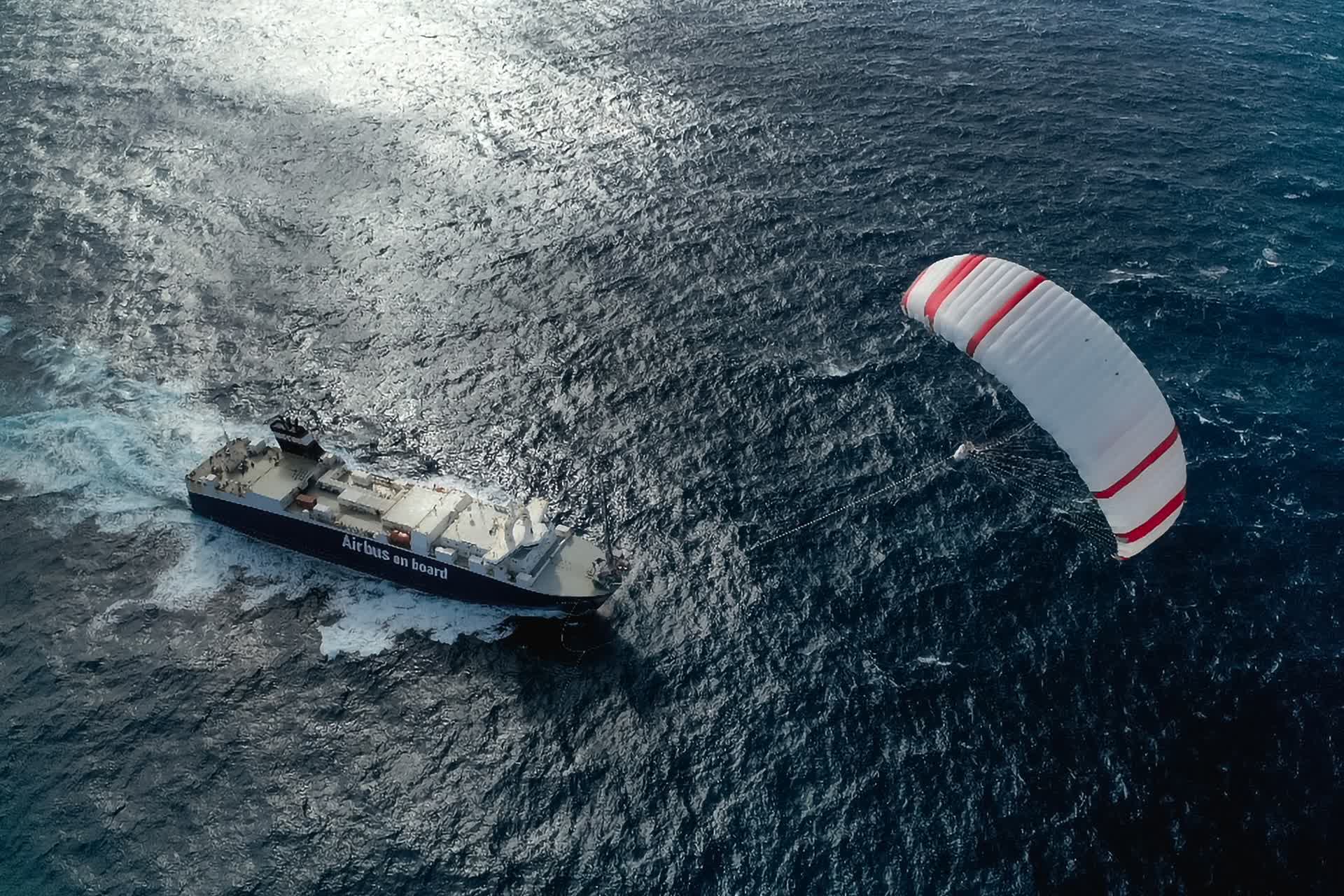In a nutshell: A French startup, Airseas, has a not-so-novel approach to reducing fossil fuel emissions--tie a big kite to your ship. It is developing a 1,000-square-meter parasail called the "Seawing" that helps pull vessels across the ocean. It plans to begin manufacturing the Seawing after the construction of its fabrication facility completes in 2026.
The Seawing aims to act as a retrofitted device. Therefore simply attaching it to the front of a ship will not cut it. Airseas says that its system will handle the complicated job of deploying the sail with little effort from the ship's crew. Although the company did not reveal explicit details of the Seawing's deployment methods, it tested a prototype that successfully launches, ascends, descends, and "lands" with only a few button pushes.
Supposedly, the Seawing will take some of the stress off a vessel's engines and thus require less fuel to propel the ship. However, Airseas did not broach how the Seawing works when the ship travels against a headwind or moves faster than a tailwind. Presumably, most ships are more speedy than wind, or we'd still be sailing products across the ocean in the import/export business.
ðÂÂÂAn important step for shipping's decarbonisation. And a big step for Airseas' crew onboard Louis Dreyfus Armateurs' Ville de Bordeaux!
– Airseas (@Airseas_Tech) May 24, 2023
Let's reclaim the millennium-old, powerful and 100% renewable energy of the wind!#windpropulsion #cleantech pic.twitter.com/Dd72VW8vyg
Regardless of the answers to those questions, Airseas is continuing testing on actual commercial voyages. It has partnered with Louis Dreyfus Armateurs and Airbus, which transport aircraft components between Europe and the US. The company also inked a 20-year deal with Japanese shipping company "K" Line to outfit up to 50 ships with Seawings. Airseas estimates that by 2031, its technologically advanced sail can reduce sea transport emissions by up to 20 percent.
With feasibility, traction, and mechanics testing underway, the company will next focus on gathering performance data, dynamic flight testing, and fine-tuning the automation system before going into mass production. Even though its facility won't open until 2026, Airseas is already beginning to grow its staff. It plans on adding 70 new positions by the end of the year, bringing its staff headcount to 190.
"These are industrial, local jobs, which will enable the delivery of our green technology by 2031. To achieve this, we are currently seeking and gaining new partners," said General Manager Pierre-Yves Fouché.
